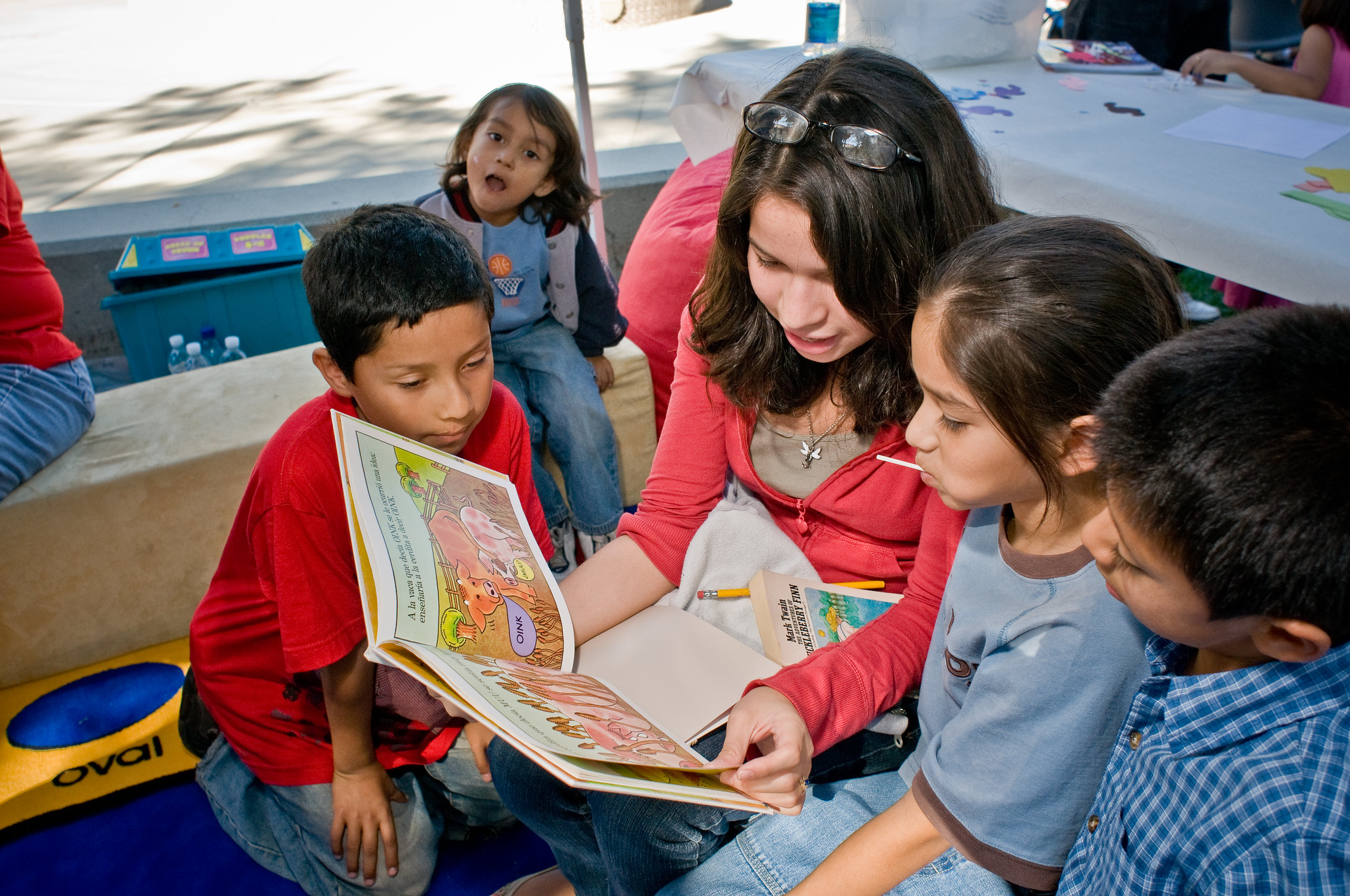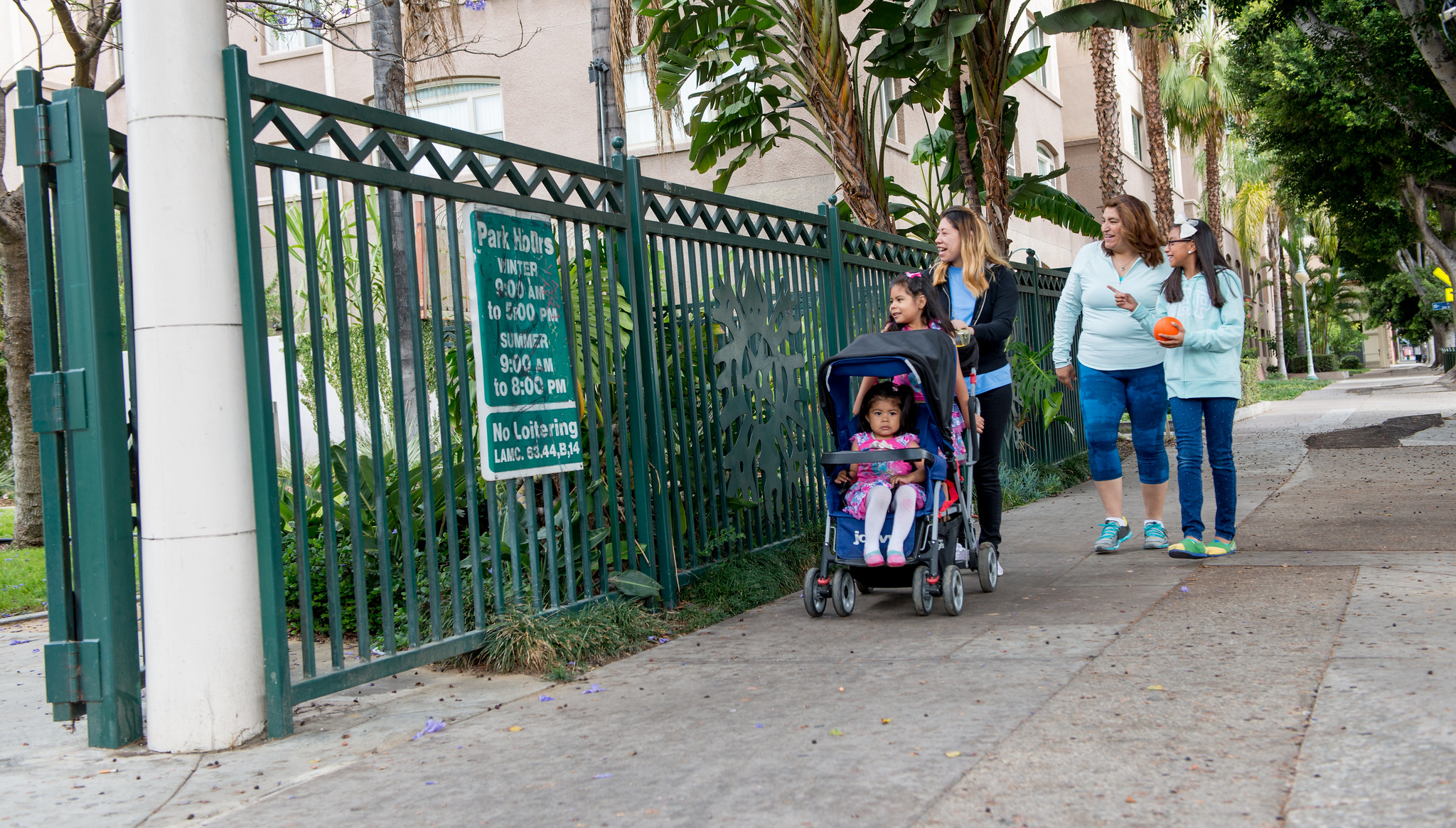
Ofelia Medina | Office of Government Affairs and Public Policy Senior Policy Strategist
January 25, 2024
In the second year marked by economic volatility, “keeping promises” and “accountability” during a period of revenue normalization were underscored by California Gov. Gavin Newsom as he unveiled his fiscal year 2024-25 state budget proposal at a press conference earlier this month. Released on January 10, the $291.5 billion spending plan features $208.7 billion in General Fund spending and a $37.9 billion deficit. While lower than the initial estimated deficit of $68 billion, the shortfall still poses challenges that Newsom hopes to balance with a mix of funding cuts and delays, as well as dipping into the state’s Rainy Day funds, to protect investments in core priorities, including many related to family- and child-serving systems.
This difference in deficit estimates stems from how the administration and the Legislative Analyst’s Office (LAO) define “baseline changes.” The shortfall is mainly due to a drop in revenue in 2022-23 caused by higher borrowing costs, reduced investments, and lower tax collection, all affecting the state’s economy. The federal tax filing extension also meant the Legislature didn’t have a complete picture of the 2022-23 tax collection until after the fiscal year ended.
Newsom highlighted key issues like homelessness, mental health, public safety, transitional kindergarten, climate change and the economy during the release. While most of these issue areas receive continued investment, some, like climate and homelessness, face delays or cuts. It’s crucial to consider that Newsom’s term ends in 2027, which may influence his decisions and how he presents California’s economic health.
Ahead of budget deliberations between the California Assembly and Senate, state officials shared their priorities. In a joint press statement, Assembly Speaker Robert Rivas (D-Salinas) and new Assembly Budget Chair Jesse Gabriel (D-Encino) expressed their commitment to fiscal restraint, spending oversight and accountability. They emphasized key investments in housing, climate, and education while protecting California’s vulnerable population. On the Senate side, President pro Tempore Toni G. Atkins urged caution and mindfulness during budget deliberations, citing Newsom’s demonstration of these principles in his budget proposal. Senate Budget Committee Chair Nancy Skinner praised the focus on protecting social services and prioritizing children.
However, there was criticism from Senate GOP leader Brian Jones (R-Santee), who accused Democrats of reckless spending, and Assembly Budget Committee’s top Republican Vince Fong (R-Bakersfield), who deemed it premature to dip into the state’s Rainy Day Fund. Media reactions largely reflected the Governor’s language on revenue volatility, acknowledging the fiscal challenges in maintaining costly policy promises after facing deficits for two consecutive years.
Due to the unpredictability of the economy, the budget proposal is likely to look very different between now and the May Revise, creating a window of opportunity for advocacy organizations and First 5 LA partners to promote their priorities. Early childhood advocates responses to the budget have ranged from complimentary to critical. Early Edge and End Child Poverty California commended Newsom for honoring prior commitments, while other groups, such as The Children’s Partnership, Catalyst California, and Black Californians United for ECE, acknowledge protection of previous investments as important while calling out a need to build on momentum for historically marginalized and disinvested communities. Others, such as the California Pan-Ethnic Network and the California Budget and Policy Center, emphasized economic inequality as the underlying challenge and critiqued Newsom’s resistance to reforming the tax system to generate revenue that could help prevent future austerity measures. Similarly, the League of California Cities has been critical of what they deem to be substantial budget reductions and shifts in funding for climate programs that will impact cities, most notably an 11% reduction of the $54 billion that was originally dedicated over five years.
Throughout the budget process, First 5 LA advocacy priorities will focus on elevating a Children’s Budget in support of core programs by asking state leaders to maintain investments made in previous years in early childhood-serving systems. For the First 5 LA, First 5 Association, and First 5 California joint statement on the budget, click here.
Key highlights of the Governor’s 2024-25 January Budget Proposal related to First 5 LA’s priorities include:

Family Supports: Promote a comprehensive system of family supports to advance positive outcomes for the whole child and whole family.
.
- $26.7 million to increase CalWORKs Maximum Aid Payment levels by 0.8% beginning October 1, 2024. This is in addition to the 2.6% statutory increase in 2023-24.
. - $12 million increase for Foster Care Rate Reform to make automation changes for the foster care payment structure, with full implementation anticipated as early as 2026-27.
. - Maintains $200 million ($100 million General Fund) for the California Reproductive Health Access Demonstration Waiver to support access to reproductive health services beginning no sooner than July 1, 2024.
. - A General Fund reversion of $55 million from 2023-24 and a reduction of $71 million beginning 2024-25 and ongoing for family stabilization under CalWORKs.
. - Reduction of $8.3 million to the Los Angeles County Child Welfare Services Public Health Nursing Program in 2024-25 and ongoing, eliminating all funding for this program. This program provides public health nurse expertise to coordinate access to medical, dental, mental and developmental services for children and youth in foster care.
. - Reduction of $30 million to the Family Urgent Response System, a hotline for foster youth and their caregivers, in 2024-25 and ongoing.

Health Systems – Improve systems to promote the optimal development of children through early identification and supports.
.
- Maintains $2.4 billion ($811.1 million General Fund) to continue California Advancing and Innovating Medi-Cal (CalAIM).
. - Maintains $8 billion across various Health and Human Services departments to expand the continuum of behavioral health treatment and infrastructure capacity and transform the system for providing behavioral health services to children and youth.
. - Maintains $7.6 billion ($350.4 million General Fund, $87.5 million Mental Health Services Fund, $2.6 billion Medi-Cal County Behavioral Health Fund, and $4.6 billion federal funds) for Behavioral Health Community-Based Organized Networks of Equitable Care and Treatment (BH-CONNECT) Demonstration implementation effective January 1, 2025.
. - Delays $1 billion ($612.5 million General Fund) to support service provider rate reform for developmental services, returning to the initial timeline for the rate reform (July 1, 2025).
. - Delays $140.1 million until 2025-26 for the nursing and social work initiatives administered by the Department of Health Care Access and Information (HCAI), impacting workforce expansion efforts approved in the FY 22-23 State Budget.
. - Seeks early action by the Legislature to add a trigger to SB 525, which is set to incrementally increase the minimum wage to $25 per hour for specified health care workers, effective June 1, 2024.

Early Learning – Expand access to affordable, quality early care and education.
.
- Invests $65 million ongoing Proposition 98 General Fund to reflect a cost-of-living adjustment increase of 0.76% for specified categorical programs and the Local Control Funding Formula Multiplier. This affects various public education settings, including the State Preschool Program, the American Indian Early Childhood Education Program, and more.
. - Maintains $6.6 billion for child care and development programs (such as CalWORKs, Alternative Payment Programs and General Child Care) and local supports for these programs, such as Resource and Referral and Local Child Care Planning Councils, in addition to quality improvement projects.
. - Maintains $2.1 billion for roughly 146,000 state-subsidized child care spaces with the goal of creating over 200,000 spaces by 2026-27. These seats were originally part of the 2021 Budget Act but were delayed last year. However, upon further inspection, the budget proposal does include a sweep of any unused seats.
. - Maintains $723.8 million in General Funding to implement the current memorandum of understanding between the state and Child Care Providers United, including work to move the state towards a single early learning rate structure using an alternative methodology for estimating the cost of care. Approximately $54 million (General Fund) of this is to support rate increases that were previously funded by federal relief dollars.
. - Delays $550 million for the California Preschool, Transitional Kindergarten and Full-Day Kindergarten Facilities Grant Program over a three-year period (through 2027-28). However, in the spring, the administration plans to discuss with the Legislature the inclusion of a facilities bond on the November 2024 ballot.
. - Delays $10 million General Fund of the Preschool Inclusion Grant program until 2026-27. This grant funding is intended to increase the number of students of children with disabilities within the California State Preschool Program.

Communities – Ensure communities have the resources and environment that supports optimal development of children prenatal to age 5.
.
- Maintains $1 billion for Climate Smart Agriculture investments that help foster a healthy, resilient, and equitable food system; maintains $1.5 billion for ongoing universal school meals.
. - Maintains $3.4 billion for the state’s efforts to address homelessness. This includes $400 million for a third round of encampment resolution grants and $1.1 billion for a fifth round of Homeless Housing, Assistance and Prevention (HHAP) grants across 2023-24 and 2024-25. $260 million of the HHAP grant funding will be delayed from 2023-24 to 2025-26 to better align with when those funds will be available to eligible applicants.
. - Maintains $844.5 million ($635.3 million General Fund) in 2023-24, $2.1 billion ($1.6 billion General Fund) in 2024-25, and approximately $2.5 billion ($2 billion General Fund) ongoing, inclusive of In-Home Supportive Services costs, to expand full-scope Medi-Cal eligibility to all income-eligible adults ages 26 to 49 regardless of immigration status on January 1, 2024.
. - Delays $175 million General Fund for the Department of Toxic Substances Control’s Cleanup Vulnerable Communities Initiative Program, which provides funding for cleanup and workforce development to communities that suffer from environmental contamination. The budget envisions $85 million in 2025 26 and $90 million in 2026-27.
. - Delays $80 million General Fund for the Bringing Families Home Program to 2025-26. This program provides financial assistance and housing-related supportive services to reduce the number of families in the child welfare system experiencing or at risk of homelessness.
. - Reduction of $20.6 million General Fund in 2021-22 and $8.9 million in 2022-23 across the Urban Agriculture Program, Healthy Refrigeration Grant Program, and Farm to Community Food Hubs Program. This reduction maintains approximately $98 million (77%) for healthy, resilient, and equitable food system programs.
. - Reduction of $835,000 General Fund to the Proud Parent Grant Program, a state grant program that provides services to support young parents (age 25 and younger) who are or were involved in the juvenile justice systems and/or who are considered crossover youth within the child welfare system.
Next Steps:
The January budget proposal is the first step of California’s budgetary developmental process. From now until mid-May, negotiations will take place between the administration and Legislature. The Assembly and Senate budget committees will also hold hearings to flesh out their priorities and develop proposals of their own. These activities will inform the May Revise, where we will see a revised budget. The Legislature will finalize its version of the budget and continue negotiations with the administration through June. Newsom must sign the state’s 2023-24 budget by June 30.








